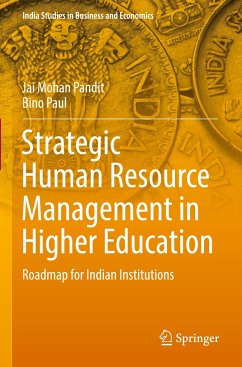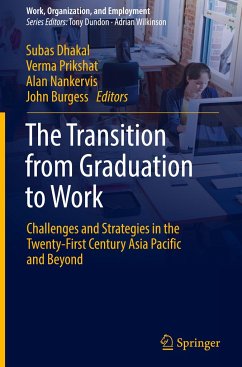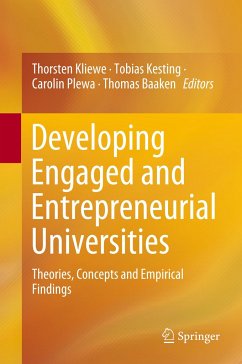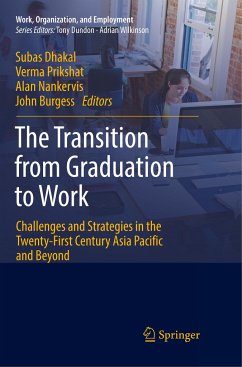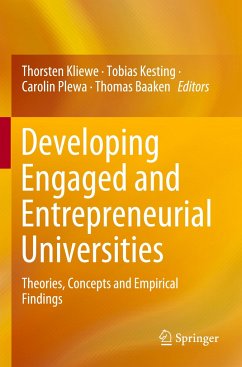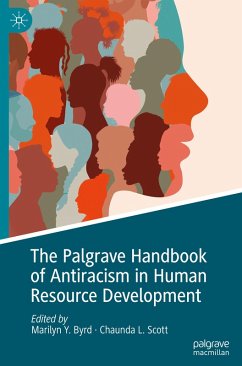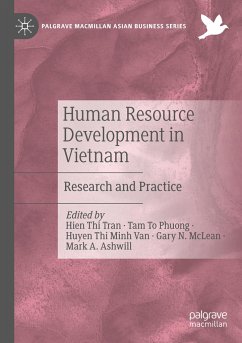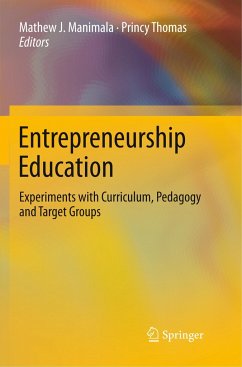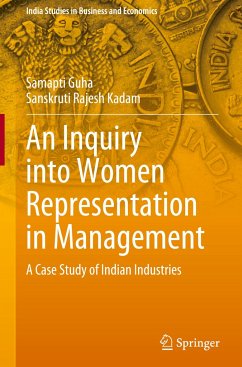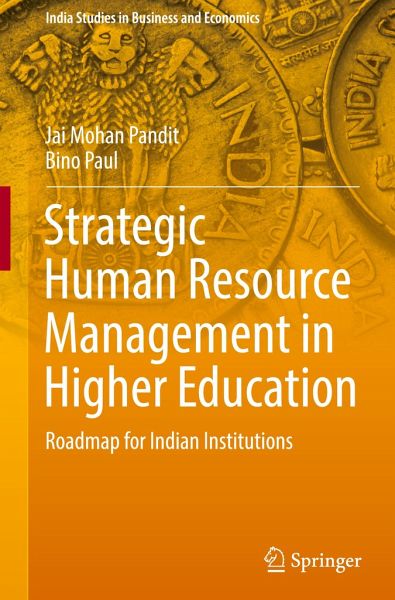
Strategic Human Resource Management in Higher Education
Roadmap for Indian Institutions
Versandkostenfrei!
Versandfertig in 6-10 Tagen
121,99 €
inkl. MwSt.
Weitere Ausgaben:

PAYBACK Punkte
61 °P sammeln!
This book explores the practices and policies of human resource management (HRM) in higher education institutions (HEI), while also analyzing the governance and structural challenges. It explains the assessment of university as an organization, outlining the distinction between universities and firms from an HRM point of view by analysing various objectives, parameters and outcomes. The book broadly probes the relevance of HRM systems in HEIs in India and their potential impact. It also examines whether existing HRM practices and policies in HEIs in India drive motivation and enable employees ...
This book explores the practices and policies of human resource management (HRM) in higher education institutions (HEI), while also analyzing the governance and structural challenges. It explains the assessment of university as an organization, outlining the distinction between universities and firms from an HRM point of view by analysing various objectives, parameters and outcomes. The book broadly probes the relevance of HRM systems in HEIs in India and their potential impact. It also examines whether existing HRM practices and policies in HEIs in India drive motivation and enable employees to perform their functions to achieve the highest possible levels of excellence. It explores whether the enhanced motivation of employees consistently impacts students, their placements, progress to higher education, and quality teaching and research output. To strengthen the research output, to better understand the functioning of HRM practices in foreign HEIs and for comparative reasons, the book also studies HEIs in the United States against a diverse set of HEIs in India. It concludes by highlighting the impact of India's National Education Policy 2020 and its scope to transform and professionalise the higher education system in the country. The book is indispensable for researchers in education management and policy studies and those in governing positions in higher education institutions. It is also a valuable resource for regulatory and government bodies, and policy-formulating think tanks in South Asia which have a similar education system as India.



